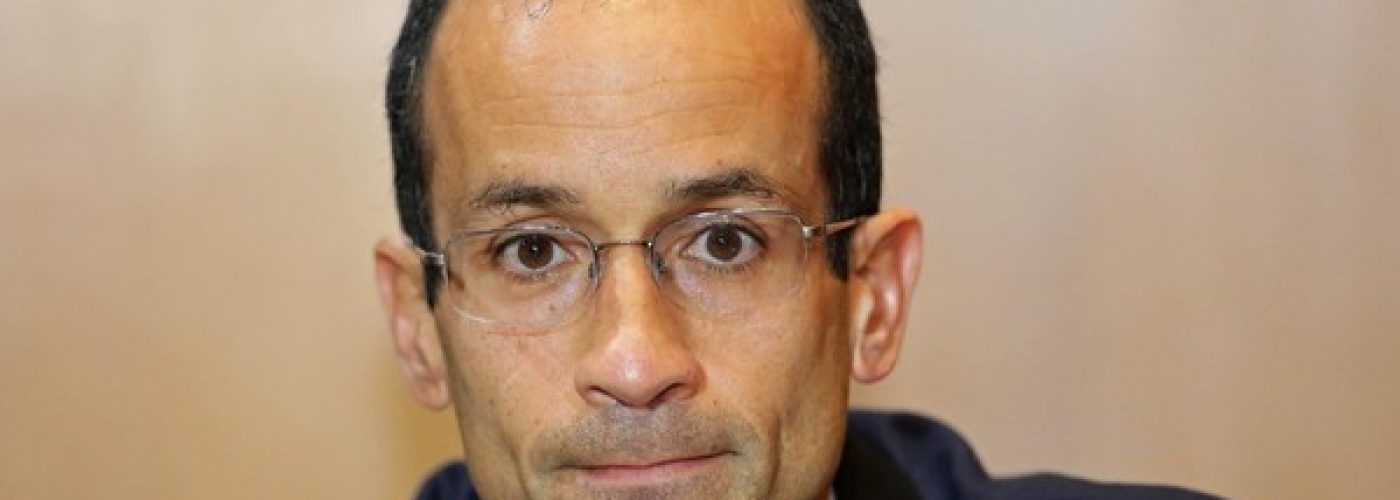 ©AFP
©AFP
Marcelo Odebrecht is said to have been lifting makeshift weights in a windowless cell in the south of Brazil
At first glance, the event looked like any other attended by Marcelo Odebrecht during his time as chief executive of Latin America’s biggest construction conglomerate.
Peering through his trademark half-rimmed glasses, the 47-year-old heir to the Odebrecht family fortune spoke carefully into the microphone, delivering what he described as his “initial considerations”.
However, on the other side was not an adoring audience but Sérgio Moro, a federal judge investigating Mr Odebrecht’s role in the vast corruption scandal at Petrobras, Brazil’s state-controlled oil company.
Mr Odebrecht was giving televised testimony, and such appearances are expected to be the only public ones he will make for the foreseeable future after being sentenced this week to 19 years in jail for wrongdoing in relation to Petrobras.
The conviction of Mr Odebrecht for corruption, money laundering and belonging to a criminal organisation is the most high-profile yet in the inquiry into Petrobras, which has cast suspicion on some of Brazil’s most powerful political and business figures.
Tuesday’s sentencing even moved Brazil’s currency markets, strengthening the real as traders bet the downfall of Mr Odebrecht, a donor to the ruling Workers’ party, could hasten the government’s collapse.
In his 234-page verdict, Judge Moro said Mr Odebrecht had paid large bribes to officials at Petrobras using secret offshore accounts.
“Corruption with the payment of bribes worth more than R$100m and causing as a consequence equivalent losses to the public coffers deserves special reprobation,” he said.

Mr Odebrecht denied any wrongdoing. In a statement, Nabor Bulhões, his lawyer, called the sentence “unjust” and a “serious legal error”.
Investigators believe that for much of the past decade Petrobras executives conspired with Brazil’s largest construction companies to inflate the oil producer’s contracts. They allege that billions of dollars were stolen to fund lavish lifestyles, pay bribes and funnel money to politicians, largely from the Workers’ party, and its allies.
Only a few years ago, Mr Odebrecht’s conviction would have been unthinkable.
The Odebrecht group, which was founded by Mr Odebrecht’s late grandfather Norberto in 1944, has long been a linchpin of the Brazilian economy and an integral part of foreign policy.
With more than 160,000 employees and engineering projects that range from World Cup football stadiums to airports and nuclear submarines, Odebrecht operates in almost 30 countries. The company has often worked jointly with the Brazilian government.
Mr Odebrecht, who attended IMD business school in Switzerland, would throw dinner parties for members of Brazil’s political and business elite, establishing his place in an inner circle of the most influential.
On 19 June last year, his life suddenly became unrecognisable. In a police operation across several states, the publicity-shy executive was taken into custody in the south of Brazil where he has been held without bail since.
According to local media, Mr Odebrecht was sleeping on a bunk in a windowless cell and using communal showers. The methodical fitness fanatic was said to have set himself a strict exercise routine, lifting makeshift weights and spending the rest of his time reading documents related to his case.
Mr Odebrecht, who is said to be an aggressive businessman used to getting his own way, scored a minor victory early on, persuading Judge Moro to allow him to supplement his prison diet with cereal bars to keep his hypoglycaemia medical condition under control.
However, following his conviction Mr Odebrecht and his legal team will be focusing all of their persuasive powers on overturning Judge Moro’s verdict.
“Marcelo Odebrecht will continue fighting for his freedom and his innocence,” said his lawyer.
Copyright The Financial Times Limited 2016. You may share using our article tools.
Please don’t cut articles from FT.com and redistribute by email or post to the web.





